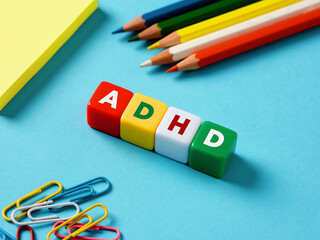
Stimulant medications are often the first-line treatment for childhood attention deficit/hyperactivity disorder. Medication has shown to be more effective than behavioral treatment for ADHD, and it is still unclear whether behavioral treatments provide any additional value when used in conjunction with medication.
While medication can significantly reduce inattention, impulsivity, and hyperactivity for most children with ADHD, about 20-35% of children do not appear to benefit from it. Additionally, medication side effects such as insomnia, loss of appetite, and anxiety are common. About 50% of children opt to eventually discontinue its use. As a result, there remains a need for effective non-pharmacological treatments.
Mindfulness-based treatments, with their demonstrated effects on attention and emotional regulation, are worth exploring in this regard. Meppelink et al. [Mindfulness] tested the effectiveness of conjoint child-and-family mindfulness-based intervention against methylphenidate medication in children with ADHD.
The researchers randomly assigned 91 Dutch children with ADHD (average age = 11 years; 71% male), along with 91 of their mothers and 81 of their fathers, to either mindfulness-based or medication treatment groups. Children in the medication group received methylphenidate, titrated until reaching an optimal response. The mindfulness intervention included 8 weekly 1.5-hour group sessions for the children and 8 weekly 1.5-hours group sessions for their parent(s), focusing on mindful parenting.
After the initial training, families attended a 1.5-hour booster session. They were required to follow their assigned protocol for 4 months but could switch treatment afterwards.
About 50% of the families in the mindfulness group kept their protocol, while the other half switched to medication. About 75% of the families in the medication group stayed with medication, while a quarter discontinued it. Many families sought additional help from outside providers during the study. Thirty-five percent of the medication group sought out mindfulness-based treatments, and 23% of the medication group and 35% of the mindfulness group sought out other behavioral treatments.
Children were assessed at baseline and 2, 4, and 10 months on self-, parent-, and teacher-report behavioral measures. They were also assessed on neuropsychological measures of attention at baseline and 2 months.
The results showed that while both groups significantly improved on child-, parent-, and teacher-rated symptoms at 2 and 4 months (d = -0.20 to -0.57), improvements were significantly greater for the medication group (d = -0.28 to -0.76) . At two months, both groups fared significantly better on neuropsychological measures (d = 0.38 to 1.11) , but there were no significant between-group differences. At 10 months, maternal behavioral ratings no longer differed between the groups, although fathers still rated medication as more effective.
The treatment effects remained consistent for both mindfulness and medication participants who stayed the course with their initial treatment assignment. Mindfulness participants who switched to medication deteriorated at 4 months (before switching) but showed improvements at 10 months. Medication participants who stopped medication either deteriorated at 4 months (before switching) or at 10 months.
A second cohort of 29 children with ADHD and their families refused randomization and were assigned to their preferred treatment. Once again, while children in both treatment groups showed reduced symptoms, medication demonstrated superiority.
The findings suggest that both mindfulness and medication improve behavioral and neuropsychological measures in children with ADHD. In the short-term, medication showed superiority to mindfulness on behavioral measures, but no difference on neuropsychological measures. However, the superiority of medication declined over 10 months in maternal ratings, but not paternal ratings.
The study is limited by the many families who opted to switch protocols after four months or received adjunctive treatments outside the protocol complicating the interpretation of longer-term effects.
Reference:
Meppelink, R., de Bruin, E. I., Zoller, B. K., Oort, F. J., & Bögels, S. M. (2024). Child and Parent Mindfulness-Based Training Versus Medication for Childhood ADHD: A Randomised Clinical Trial. Mindfulness.
Link to study